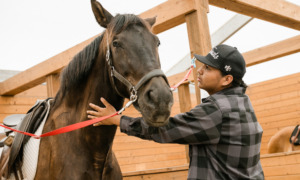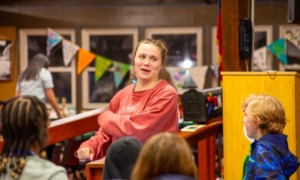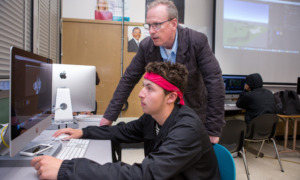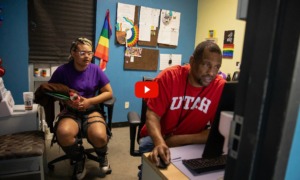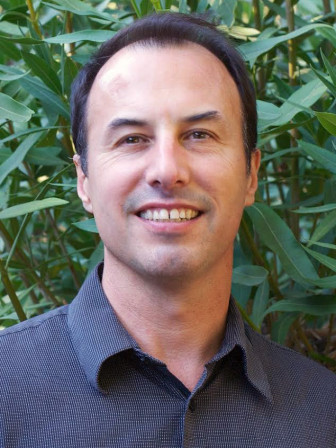 The OST field has been increasingly expected to add social emotional learning (SEL) to their growing list of objectives over the past few years. On one level, this shouldn’t be too difficult, as our field has long embraced youth development outcomes, which I believe have had a significant influence on the development and rapid adoption of SEL in the school day.
The OST field has been increasingly expected to add social emotional learning (SEL) to their growing list of objectives over the past few years. On one level, this shouldn’t be too difficult, as our field has long embraced youth development outcomes, which I believe have had a significant influence on the development and rapid adoption of SEL in the school day.
However, we can’t teach something well if we don’t fully know or embody it ourselves in our daily practice. Do the staff of OST programs possess these skills at a level where they can effectively model and teach them? Sometimes, but not always.
The Collaboration for Academic, Social and Emotional Learning (CASEL) defines SEL as “the process through which children and adults acquire and effectively apply the knowledge, attitudes and skills necessary to understand and manage emotions, set and achieve positive goals, feel and show empathy for others, establish and maintain positive relationships, and make responsible decisions.”
While a commonly accepted set of these skills has yet to emerge, organizations like CASEL and the Youth Development Executives of King County in Seattle have developed their own lists of skills and dispositions, such as future orientation, self-management, perseverance, social awareness, relationship building, creativity and critical thinking.
If we expect staff to support the development of SEL in children and youth, we need to spend the time and resources required to strengthen these same skills in afterschool staff, site coordinators and line staff as well. We need staff who can set and persevere toward goals, who can manage conflict and build relationships, even where differences exist.
At least in the San Francisco Bay Area, where I coach, train and observe dozens of OST sites, many programs must hire young, inexperienced staff. The pay is often low, turnover is high, and finding time for professional development, team building and self-care is always a challenge.
At sites where the staff themselves don’t yet possess high levels of SEL skills, I see a resistance to change, inability to give or take constructive feedback and a lack of shared goal setting and planning. In the classroom and on the playground, I observe a lack of behavior guidance and conflict management skills, resulting in lowered productivity, poor teamwork and ultimately, less learning.
In their prescient 2003 book “Bringing Yourself to Work,” Michelle Seligson and Patricia Stahl posited that the strength of thriving after-school cultures rests “in giving the support and mechanisms [staff] need to be authentic at work, to forge deeper connections with others, and to understand their role as members of a group.”
So how can we build these skills and abilities in our staff? We can do this through modeling SEL skill-building activities and effective communication in our staff meetings and team-building activities, through professional development and regular observations and feedback.
I’ve seen some powerful examples where a site coordinator has taken a lead in supporting staff. At Sherman Elementary School’s Sharks Until Dark program in San Francisco, Becca Vershbow has implemented weekly staff meetings where her team has time to talk about and practice self-care, clear and honest communication, and discuss strategies for building SEL skills in their youth.
She and her staff have implemented some simple mindfulness and restorative practices. Since then she has noticed that “students are much quicker to de-escalate when in a conflict or in a state of high stress. They are then capable of having kind and productive conversations when they need to find resolution.”
The results haven’t had an impact only on the youth: “Staff are much more tolerant of high-energy behavior that isn’t always conducive to a classroom environment. Yesterday, I saw one of the first grade boys who was ‘in trouble’ all of the time last year because he struggles with keeping his body calm. He was in the hallway with his teacher doing jumping jacks before homework time started. They were laughing together and I could tell this was part of his routine, to get his energy out before starting homework. A few minutes later, I observed that he was sitting quietly, perfectly calm, and getting his homework done!”
Ultimately, the funders and systems leaders who are asking OST programs to be accountable for SEL development need to advocate for the resources and professional development needed to train and support staff in developing these critical skills.
Oscar Wolters-Duran is a coach, trainer, and facilitator for OST programs, based in the San Francisco Bay Area. He also serves on the board of the Center for Sustainable Change, whose mission is to help youth and their caregivers access their innate mental health.


